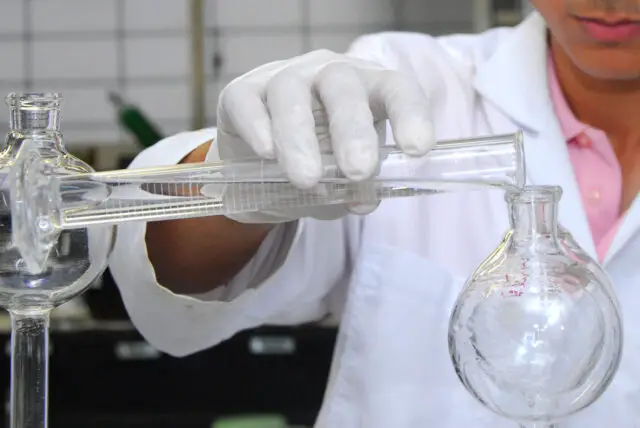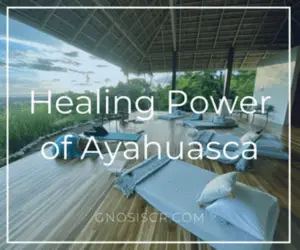Ecologists from Costa Rica carry out a series of environmental educational campaigns that influence the nation’s agricultural producers to restrict the excessive use of agrochemical products that are causing serious environmental contamination in the soil, air and water tributaries of the country, which causes severe damage to humans and other species living in the ecosystem.
Costa Rica is one of the country`s in the region that has shown significant economic growth in agricultural and livestock production in recent years; however, this positive financial aspect that favors development also has negative environmental consequences for the nation’s ecosystem which is also considered one with the greatest natural beauty in the American region.

Inappropriate use of pesticides
After the growing agricultural production is accompanied by the inappropriate use of a series of pesticides, herbicides, pesticides and chemical fertilizers that are implemented in large agricultural areas to increase the output of different crops. They contribute to the food consumption of the Costa Rican people and agricultural export products.
Ecologists and indigenous populations alarmed
However, the agricultural issue in Costa Rica alarms ecologists and some indigenous populations of the country who are affected by the indiscriminate use of them, causing damage to the soils due to the constant degradation suffered by arable land, which positions the nation as one of the Latin American countries with the highest use of pesticides and herbicides.
This unfavorable reality for the Costa Rican territory occupies ecologists from the country who seek to transform this environmental situation through the application of public policies that develop preventive social educational plans that motivate rural populations to reduce the use of these polluting chemical products, and plan to promote the development of organic agriculture in harmony with nature.
Avoiding Paraquat
One of the environmental campaigns to recover agricultural soils focuses on avoiding the use of Paraquat, also known as “gramoxone”, which in Costa Rica for decades has been the main cause of occupational poisoning with pesticides and suicides due to its ingestion.
Mortal poisoning
Young people in indigenous areas of Costa Rica have used this deadly poison that the Ministry of Agriculture (MAG) itself delivers for committing suicide, even though the communities oppose it.
The local indigenous government (ADITICA Pronouncement) and the Federation of Indigenous Women of Talamanca have been clear in their rejection, which has said: “how is it possible that the MAG disrespects our will and gives us poisons that we do not know how to handle and that our young people are using to commit suicide. These suicides are a social emergency and are facilitated because there are agrochemicals throughout the territory that have not been adequately stored, so the poison accumulates and gets to the hands of people with suicidal tendencies.”
According to the Inter-institutional Commission for the Prevention of Suicide in Talamanca, in past years the figures averaged 47 suicide attempts, the majority in adolescents between 12 and 14 years of age; these data motivated the declaration of municipal emergency, since more than 50% have been using agro poison.
The request made by the environmentalists is accompanied by the indigenous peoples of Costa Rica for the suppression of the use of Paraguat, considering that this chemical product has currently been prohibited from being used in more than 40 countries around the world because of it is high toxicity.
Paraquat`s environmental effects and impacts
This agrovenom is considered an extremely toxic chemical for plants and animals, especially fish. It accumulates in aquatic organisms; crustaceans are very sensitive in the early stages of development. In humans, it is warned that inhalation and skin contact can cause coughing up blood and irreversible damage to the lungs, liver and kidneys.
Ingesting a single teaspoon of the compound can be fatal. Farmworkers suffer skin burns, blindness, respiratory damage, and chronic kidney failure from its use. In the ground it is immobile and extremely persistent; in the sediment and subsoil it remains adsorbed (biologically unavailable) for many years without degradation.
Costa Rican Ecologists Question the Industrial Use of Agro-toxins
The Del Monte company and the pineapple agro-industry were recently questioned by an ecologist for the dioxin “incense” they carry out with dangerous agro-poisons, since they mainly apply them to manage waste from the pineapple plantations and then burn the stubble, regardless of the time that has passed, with the persistence of these pesticides, dioxins are generated, which are powerful pollutants that are worrying due to their high toxic potential.
Experimentation has shown that they affect various organs and systems in humans. Prolonged exposure has been linked to impaired immunity and developing diseases of the nervous system, the endocrine system, and reproductive functions.
A great contradiction
Ecologists pointed out the great contradictions of the pineapple sector in relation to their good practice manuals, which they continually cite to affirm that all their production is friendly to the environment. According to Luis Ángel González Alfaro of FECON environmental organization they strongly recommend“prohibitingtheir use and require the practice of destroying biomass through the mechanical action of agricultural implements to avoid the use of herbicides and burning in general.
For these and many other reasons that can be seen in the scientific literature, FECON asks the MAG to consider all the technical evidence that has led more than 40 countries to ban the most dangerous agro-poisons and at the same time weigh the socio-environmental cost that their consumption implies in the country and not become the toxic dump where the world stocks up agro-poisons, as is happening with Paraquat and Dibromochloropropane (D.B.C.P) that have left thousands of people seriously ill.

